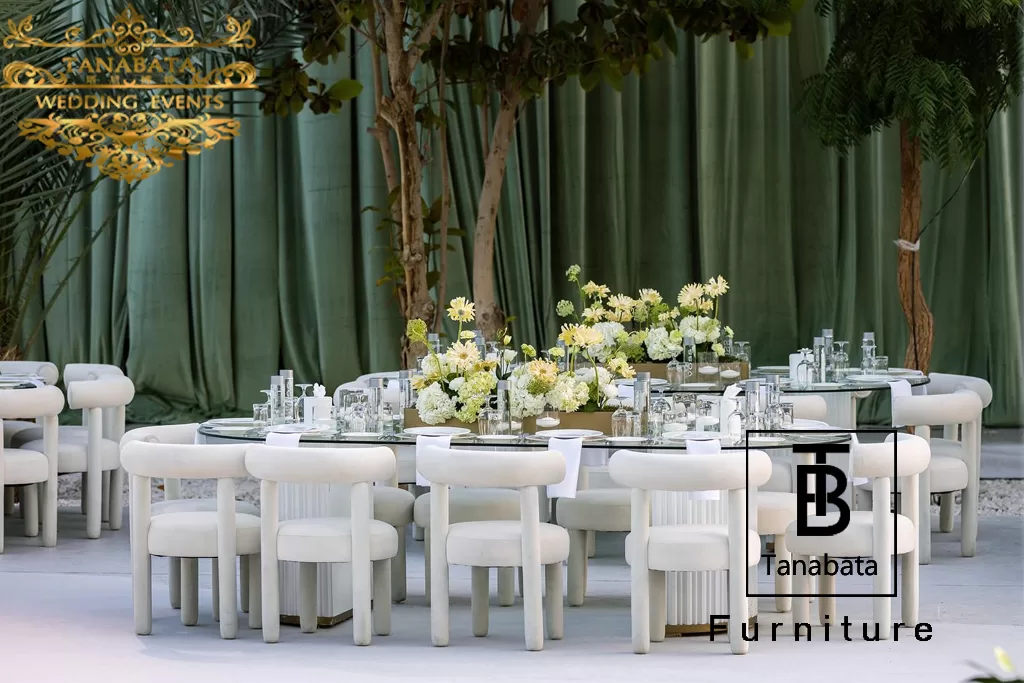It’s no secret that arranging a wedding is a big deal. It can seem like there are a million things to plan, organise and pay for before your big day is ready to kick off.
To help keep things simple and stress-free, it’s important to plan well ahead and have open conversations with your partner about all the different aspects of your wedding you’ll need to consider. To help make this process easy and straightforward, we’ve made a step-by-step guide to planning the perfect wedding. Keep scrolling for the 10 most important things you’ll need to consider when planning your big day.

- Envision your dream wedding together
The first, and possibly MOST important step to planning your big day is to give yourself the time to envision what your dream wedding would be. This early stage of the process can be done through personal reflection on your values, hopes and expectations of the day, but it also should include continuous communication with your partner. This kind of reflection will help you work out how you feel about some of the bigger questions around your wedding plans, including:Traditional or modern wedding – This is one of the most important conversations to have when you’re planning your wedding, as many people have strong feelings about this question. Compromise is possible on this point, however, as traditional and contemporary elements are blended together in weddings all the time.
A grand affair or intimate gathering – This conversation will most likely involve the number of people you plan to invite to your wedding.
Humble wedding or a big blowout – Most of these early thoughts and reflections will depend on what kind of budget you’ve set for your wedding, so it’s important to consider whether you want to keep it simple and humble, or you’re keen to have an extravagant affair.Overall themes, moods or settings – This conversation will help you and your partner get on the same page about the big questions – the where, how and what of your wedding. This might include general settings like the country you would like to celebrate in, the type of venue you imagine, the season, the general theme and other overall factors like this.
Ultimately, envisioning your wedding day is about capturing the essence of your relationship and celebrating your love in a way that feels authentic to you both. By starting with a clear vision and open communication, you’ll lay the foundation for a wedding day for everyone to remember.
- Establish your budget
While everyone would love for money to be no object when it comes to celebrating your love, it is important to think about how much financial leeway you have when beginning to plan your wedding. Start by considering your overall budget as a raw number, based on your finances, any contributions that your respective families will make, personal savings or any credit you’re willing to use.
Next, you can begin to prioritise your expenses, beginning with the necessities of your wedding. Things like the venue, catering, your wedding attire, and any necessary services you’ll have to hire. This is also a great time to do some research on the typical cost of a wedding in your city or country of choice. Once you have a general idea of the cost range of your less negotiable expenses, you can start to prioritise the remainder of your budget for other wedding expenses.
Keep in mind that your totals as well as the allocated funds for each part of your wedding planning are likely to change throughout the process. Unforeseen expenses, price changes and other surprises will almost certainly come along the way, so it’s important to stay flexible and be prepared to potentially spend more than you first planned to.
- Pick out the perfect venue
Next up should be picking out the venues where you’ll celebrate your big day. The venue choices you make will be critical in setting the tone of your wedding, so keep this in mind when you start inquiring around at venues for the ceremony and reception. Some basic choices to consider include:Indoor or outdoor – This can have a huge impact on the overall feel of your wedding, and can also introduce a range of other logistical considerations into your overall planning process. Outdoor weddings can invite a gorgeous garden party vibe or rustic, countryside feel to your wedding, but at the same time will make the weather a part of your planning process.Venue-provided catering or your own catering – Many venues offer their own catering services for your wedding reception, while some will include it in their own venue hire. Consider whether you’d prefer the venue to take care of the food and beverages for your guests or you’d like to organise your own.Traditional or unconventional venue – Convention centres, ballrooms, churches and gardens aren’t the only choices for an unforgettable wedding experience. You can also consider less conventional venues like a yacht or river cruiser to celebrate your big day as you cruise on the water.
- Build Your Invite List
Picking out your invitees can often be a difficult process. If you’re lucky enough to have a big family and a bunch of friends, then you may need to make some hard decisions due to budget constraints, venue size, location and more. If you’re planning an extravagant overseas wedding, not everyone is going to be able to make it. Likewise, if you’re planning to have a riverboat wedding, it’s likely there will be some sensible age restrictions to ensure everyone is safe on board.
It’s also important to consider how the size of your invite list could impact your budget. Fewer guests could mean lower overall costs for venue hire and catering, or you could choose to spend more per person.
- Pick out your vendors and services
There are a bunch of vendors that you might need to help see through your big day. These can range from the totally optional to the absolutely essential. Nonetheless, it’s important to consider what types of services your budget allows for, as well as what level of service you are willing to purchase. Some important vendors to think about include: DJ or musicians – An essential element of your wedding celebration is the music. This can get everyone dancing or help set the mood for your perfect evening. There are plenty of options to choose from when it comes to organising your music, including live performers, DJs and more.Photographers and videographers – Considered by most to be essential at any wedding, your photographers and videographers will help you immortalise your wedding day. There will be a wide range of prices here, so take your time to look around.Wedding Officiant – If you’re planning on getting married outside of a religious location, you’ll most likely need to hire a wedding celebrant or officiant to attend your ceremony. This is generally a legal requirement and will be necessary for your marriage to be legally recognised.Wedding bakers – If your wedding is going to include a ceremonial cake, as per the old tradition, then it’s absolutely essential to get in touch with a baker ahead of time. This will help you to work out wedding cake costs and figure out the logistical details for the day.
- Create a timeline of the big day
Planning a timeline for your wedding day is essential for ensuring a smooth and stress-free event. You can start by working backward from your ceremony time, thinking about key moments such as hair and makeup, transportation, and photography sessions. Make sure you give ample time for each activity, accounting for potential delays or unexpected circumstances.
Begin the day with hair and makeup appointments for you and your bridal party, allowing enough time for everyone to get ready comfortably. You may have to coordinate transport to the ceremony venue, ensuring that you and your party arrive with plenty of time to spare.
Next, consider what you want to do between the ceremony and reception. You could have an event that moves directly into the reception where your guests can enjoy some drinks and lunch. Alternatively, you can organise a pre-reception cocktail party or similar event if your reception begins several hours after your ceremony is scheduled to finish.
Once you’re at the reception, you’ll need to consider moments like introductions, toasts or your first dance as a married couple. Throughout the evening, try to evenly intersperse dinner service, cake cutting, and any special dances or traditions you’ve planned. This will also help to keep your guests engaged throughout the evening.
Make sure you communicate the timeline to your vendors, bridal party, and key family members to ensure everyone is on the same page. It’s also important to stay flexible and be prepared to adapt as needed, but having a well-planned timeline will help keep things running smoothly and ensure you have plenty of time to savour every moment of your special day.
About Tanabata Furniture
Established in 2006.
Tanabata team is an experienced wedding event furniture manufacturer. We love to bring our unique
creativity to life through the experiences we create for our clients.
We are a full-service event design and production factory, designing items and? creating
experiences all over the world.
Need to order wedding furniture? Welcome to contact!
Please follow our Instagram /TikTok or Pinterest to get more latest news.
